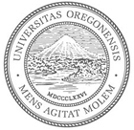 |
||
|
I teach courses on entrepreneurship and organization theory to a wide variety of students affiliated with both the Lundquist College of Business and the Knight Campus for Accelerating Scientific Impact. I also serve as Academic Director of the Lundquist Center for Entrepreneurship. In this role, I oversee our entrepreneurship curriculum, including the design of our entrepreneurship minor and the ongoing expansion of our graduate offerings.
At the University of Oregon, I have been humbled to be a six-time recipient of the Executive MBA Teaching Award, a four-time recipient of the James Reinmouth MBA Teaching Excellence Award, and to receive the Business Advisory Council Undergraduate Teaching Award twice. Prior to joining University of Oregon, I was a Lecturer at Stanford University and on the teaching team for the Mayfield Fellows Program. I also serve as affiliated faculty with National Arts Strategies, sharing insights from strategic management with the leaders of arts non-profit organizations. In addition to my teaching and curricular activities, I am co-author (with Tom Byers and Dick Dorf) of Technology Ventures: From Idea to Enterprise, now in its 5th edition in multiple translations and used in entrepreneurship courses worldwide.
|

|
|
|
Current Courses at the University of Oregon |
||
|
Bioengineering 614 - Technology Ventures: From Concept to Commercialization This course, oriented towards graduate students in the sciences, introduces and develops the vocabulary and skills necessary to successfully translate research discoveries into successful ventures. Students will identify challenges and trends that signal promising opportunities. They will practice market research skills, including the collection and analysis of primary and secondary market data. They will learn and apply the fundamentals of competitive strategy, including intellectual property protection. They will develop business and financial models, including exploration of different sources of funding. And they will learn fundamental leadership skills necessary to transform an idea into an enterprise.
|
Syllabus | |
|
Business 735 - Entrepreneurial Opportunities
These courses, oriented towards executive MBA (Business 735) and MBA (Management 635) students, introduce the fundamentals of entrepreneurship through a collection of lectures, projects and case studies that focus on high-growth ventures. The first part of the course covers processes for identifying, developing and analyzing opportunities. It draws heavily on ideas that have been popularized through the terminology of "design thinking," "customer development," and "lean startups," and involves multiple projects and exercises. The second part involves a deep dive, guided by case studies, into specific topics that are critical to early-stage ventures.
| Syllabus | |
|
Management 607 - Seminar on Organization Theory This Ph.D. seminar is designed to introduce students to the study of organizations. Thus, it explores theories of organization that stem from economics, sociology and management, and considers the development of organization theory over time. Course goals include familiarizing students with some major theoretical and empirical traditions in organization theory; enabling them to understand the role of theory in organization studies; and, ultimately, empowering students to identify new directions in organization theory and potential contributions that they might make through their own research.
| Syllabus | |
|
Prior and Occasional Courses |
||
|
Business Administration 708 - Corporate Entrepreneurship (University of Oregon) Entrepreneurship is often conceived of in terms of starting a new organization. But existing organizations, too, can apply the principles of entrepreneurship to develop new products, new business units, and new markets. This course explores how to apply principles of entrepreneurship to existing (often large, old, and/or "stale") organizations. Course topics include the challenges that established organizations confront in attempting to be more entrepreneurial, including strategic, cultural, and cognitive barriers; how to overcome these barriers; and different models of corporate entrepreneurship, including different organizational structures, practices, and incentive systems that can drive desired outcomes. | ||
|
Management 607 - Seminar on the Economics and Sociology of Science and Technology (University of Oregon) This Ph.D. seminar introduces students to the extensive literature on the economics and sociology of science and technology. Specific topics covered include: the norms and incentives underlying engagement in science; the organization of scientific fields and communities; scientific collaboration and networks; the commercialization of university research; scientific employment patterns; intellectual property; geography and knowledge spillovers; and measurement issues. | ||
|
Management 607 - Seminar on Networks and Institutions (University of Oregon) This Ph.D. seminar introduces students to the study of organizations through the lens of network analysis and institutional theory. The purpose of the course is to provide students with a thorough grounding in the "classic" social science literature on these topics. Specific topics covered include embeddedness, institutional diffusion, institutional change, historical contingency, and network dynamics. | ||
|
Management 335 - Launching New Ventures (University of Oregon) This upper-level undergraduate course provides students with a set of skills, tools and concepts that are broadly applicable across a wide range of entrepreneurial settings. Specific topics covered in the course include: identifying problems, brainstorming solutions, and determining whether they are true opportunities; understanding the process of developing and testing new business concepts; analyzing business models and industry trends; identifying and selling to appropriate target markets; marshalling the information and resources needed to pursue entrepreneurial ventures; and developing teams and alliances. | ||
|
Engineering 140A/B/C - Management of Technology Ventures (Stanford University) This three-quarter course, which constitutes the Mayfield Fellows Program, teaches entrepreneurship to masters and upper-level undergraduate students in diverse disciplines, including science, engineering, social science, and the arts. The course addresses functional management and leadership within high technology startups, focusing on entrepreneurial skills related to product and market strategy, venture financing and cash flow management, team recruiting and building strategies, and the challenges of managing growth and handling adversity in emerging ventures. | ||
|
Management Science and Engineering 181 - Issues in Technology and Work for a Post-Industrial Economy (Stanford University) This undergraduate course examined how changes in technology and organization are altering work practice. Course topics included models of organization, including the rise of bureaucracy and the network form; analysis of substitutional versus infrastructural technologies; automation; distributed and virtual organizations; and trends in occupational structures. | ||
|
Management Science and Engineering 281 - Management and Organization of Research & Development (Stanford University) This graduate-level course drew on relevant theoretical perspectives from sociology and management theory to address the social and pragmatic issues that surround technical innovation and the employment of scientists and engineers. Topics included the organization of scientific and technical communities, industrialization of research, the nature of scientific and technical work, strategies for fostering innovation, careers of scientists and engineers, and managerial problems characteristic of R&D settings. The course was directed towards masters and PhD students in engineering, along with select MBA students. | ||
|
High Technology Entrepreneurship (AeA/Stanford Executive Institute) The AeA/Stanford Executive Institute (now TechAmerica/Stanford Executive Institute) is a two-week program for 100 senior managers from leading high technology companies. The executives take a series of courses in marketing, finance, organizational behavior, product development, and supply chain management to refresh their MBA training and to focus on these subjects from a high-technology perspective. I served as co-instructor for the section on entrepreneurship, working with participants to refine business models and strategies around proposed new ventures. | ||
|
Extending Your Reach (National Arts Strategics) National Arts Strategies (NAS) has developed the premiere executive education program for the arts and culture sector, using content developed with faculty at leading business and graduate schools in the country; a unique team-centered classroom experience that brings together top executives, key staff, and key board members; framework-based models that can be readily adapted to each leader's specific circumstances; and a focus on application throughout the experience, in the classroom and in follow-on services, to enable real organizational change. Through a series of hands-on exercises and in-depth case studies, this short course explores alliance and partnership strategies for non-profits. | ||
|
Strategy and Intrapraneurship: From Planning to Action (National Arts Strategies) This short course enables non-profit teams to deepen their abilities to craft a compelling strategy and to determine the needed steps to put that strategy into action. Through a combination of lectures, case studies and hands-on exercises, participants explore how to unearth ideas and capabilities within an organization, how to implement a strategy through internal empowerment and external collaborations, and how to assess if an organization is on the right track -- and how to fix what may be going wrong. Participants gain a set of tools and frameworks that they can use not only to plan a strategy, but also to drive immediate and consequential action. | ||
| Contact: |
Prof. Andrew Nelson Lundquist College of Business University of Oregon Eugene, OR 97403 T: 541.346.1569 E: ajnelson (at) uoregon.edu |

|